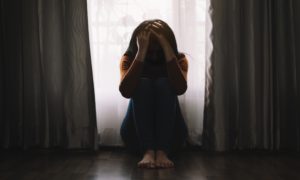
The connection between domestic abuse and poor mental health is far more common than many realise. Victims of domestic abuse and violence not only deal with the physical scars of their abuse but also significant emotional and psychological trauma that can drive them towards suicidal thoughts. For many, the abuse extends far beyond physical harm, manifesting in a complex web of emotional manipulation, isolation, and anxiety. Tragically, when support systems fail to intervene, the consequences can be fatal.
Donna’s story is a stark reminder of this grim reality, but it also highlights the importance of comprehensive support. After suffering physical and emotional abuse at the hands of her ex-partner, Donna moved to Wolverhampton in the middle of an ongoing criminal investigation. Her journey towards justice was marked by significant hurdles, including limited access to adequate housing and a severely impacted mental state.
“I had to leave my home of 12 years for safety,” she recalls. “When I arrived in Wolverhampton, I had no support network apart from The Haven’s Independent Domestic Violence Advisor (IDVA) service.”
Despite being assigned an IDVA, the emotional toll of her situation became overwhelming. The prolonged nature of her case, coupled with isolation and lack of support in her initial temporary accommodation, pushed Donna to attempt suicide multiple times. “I felt so unsupported and lost that I started drinking heavily just to numb the pain. I took an overdose because I just couldn’t see any way out.”
Donna’s experience is not unique. Studies show that survivors of domestic abuse often experience severe mental health challenges, including depression, anxiety, and post-traumatic stress disorder (PTSD). Many, like Donna, turn to substances such as alcohol to cope, only to find themselves in a deeper emotional spiral. It is in these moments of despair that mental health deteriorates and the risk of suicide becomes tragically real.
The system failed Donna in many ways—her initial accommodation was unsuitable, her mental health needs were not adequately addressed, and the justice process was unbearably slow. However, thanks to the intervention of her IDVA from The Haven, she found some light amid the darkness. The IDVA not only helped Donna secure safer accommodation, she also facilitated crucial support for her mental health and substance use challenges.
The criminal justice process also took a heavy toll on Donna’s mental state. After multiple delays in court proceedings, she felt frustrated, angry, and emotionally drained. “Every time I thought I was closer to getting justice, something would happen, and the case would be postponed. It felt like I was reliving my trauma over and over again.”
Despite these setbacks, Donna’s IDVA remained by her side throughout, providing emotional support and practical assistance in navigating the confusing and often frustrating legal process. Her story is a testament to how vital these services are in preventing further tragedy. Without the intervention of her IDVA, Donna believes she might not be alive today.
“I don’t know how I would have got through this without her. The emotional support I received was life-saving.”
Donna’s case shines a light on the need for more specialised services that focus not just on physical protection but also on emotional recovery. Too often, victims of domestic abuse are left to navigate their trauma alone, without the mental health care and practical support necessary to rebuild their lives.
Her story also illustrates the urgent need for improvements within the legal and mental health systems. Survivors should not have to wait months for court dates or mental health services, nor should they have to fight to prove their ability to live independently. Domestic abuse is a multifaceted issue, and without proper intervention, the emotional devastation can lead to fatal outcomes.
Donna’s journey is one of survival, but it highlights the grim reality for many victims. Comprehensive holistic support services, like those offered by The Haven, can make the difference between life and death. It’s crucial that we expand these services and ensure that no victim of domestic abuse is left without the help they need, whether that be in housing, mental health care, or emotional support.
As Donna continues her recovery, her story serves as a powerful reminder that while the road to justice can be long and arduous, no survivor should have to walk it alone.
If you or someone you know is struggling with domestic abuse and suicidal thoughts, reach out to local domestic violence services, a mental health professional, or a crisis helpline. There is help available, and your life is worth fighting for.
Further reading:
Suicide toll prompts call for more support for UK domestic abuse victims



